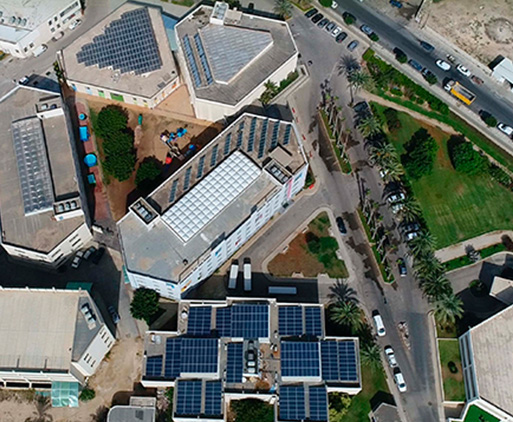
Close

The Increasing Renewable Energy (RE) Access in Host-Communities Project is funded by the Government of Netherlands and implemented by the United Nations Development Programme (UNDP) in partnership with the Ministry of Energy and Water.
The project’s objective is to increase the implementation of solar photovoltaic and/or other renewable energy projects within Non-Governmental Organizations (NGO), or Community-based Organizations, having a social impact or serving a social cause, located within the 251 most vulnerable communities in Lebanon, as a medium-term approach to reducing the impact of the Syrian crisis on the most vulnerable portion of the population and is in line with the Lebanon Crisis Response Plan for 2017 – 2020.

Thus, the project implements photovoltaic systems or other renewable energy systems in different institutes across Lebanon, which will:
1) Reduce the electricity consumption from the national grid
2) Reduce the diesel consumption from any on-site private generator and/or boiler
3) Improve the grid status by injecting the surplus of energy into the national grid via the net-metering scheme
It is adopted by the Ministry of Energy and Water (MoEW) and Éléctricité du Liban (EDL) in July 2011.
The targeted beneficiaries are NGOs and or Community-based Organizations that have a social impact/benefits. At Imam Sadr Foundation, a number of beneficiaries benefit from such a renewable energy system including
– Direct beneficiaries: the students and staff
– Indirect beneficiaries: the parents, local authorities, other schools, and visitors who might share the experience of environmentally-friendly initiatives.